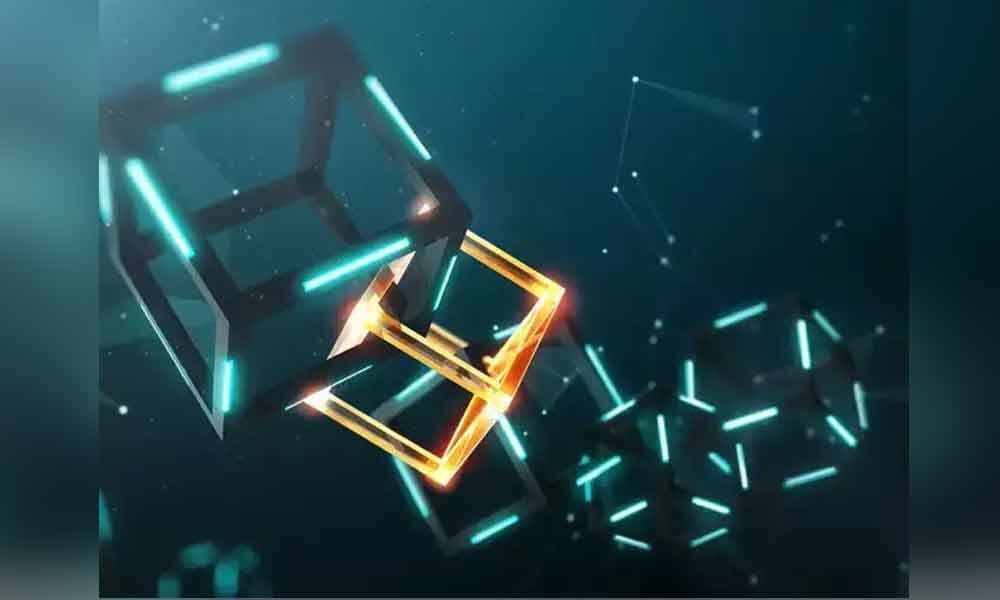Airtel, BSNL, Jio and Vodafone Idea are implementing the world's largest blockchain technology to check pesky calls and messages

The blockchain technology in the telecom industry will allow individual mobile users to establish and manage their preferences and communication consents.
More than a billion mobile phone users can expect significant relief from annoying calls and messages, as Vodafone Idea and Reliance Jio Infocomm begin to implement blockchain-based technology through partnerships with Tanla Solutions and Tech Mahindra, respectively, to deal with spammers. Bharti Airtel, with more than 325 million users, has already made a similar deployment in an alliance with IBM.
Analysts said that the implementation underway could be the world's largest use case for a blockchain solution in the telecom space, with nearly one billion subscribers that would be affected by the TRAI regulation.
The deployment is made in accordance with the regulations of the Telecom Regulatory Authority of India, which will come into effect by the month end, to protect subscribers of mobile phones from unsolicited commercial communications, or spam calls and messages. Vodafone Idea has 395 million users, while Jio has 307 million, according to TRAI data.
Vodafone Idea with Tanla Solutions has signed a multi-year contract to deploy the technology, along with a regulatory sandbox and production platform. "The deployment is underway and it will help in arresting spam and fraud-related commercial communications for Vodafone Idea subscribers," told a Tanla spokesperson. He said Tanla was also helping Airtel for the implementation of the network, though IBM is the leading vendor for the technology.
A Vodafone Idea spokesperson said the company supported Trai's initiative and was working with "new-age technologies to deliver simple (and) delightful experiences with meaningful innovations". Jio is working with Tech Mahindra, it would manage it for the telecom company. Jio and Tech Mahindra were not available to comment.
What is Blockchain?
Blockchain, which came into fame with the Bitcoin cryptocurrency, is a digital ledger for storing data including financial transactions. The technology spread out information, which is detained in a shared database that can be accessed in real time. At present, the global market for blockchain is around $500 million and expected to grow ahead of $7 billion in the next three to four years, as per IBM recent estimates.
Telcos working together to build the blockchain network
Director-general at the Cellular Operators Association of India, Rajan Mathews told all telecom operators need to partake together to deploy the distributed ledger technology and that the association had been working to have everyone in the ecosystem on board. "Everybody that is in the ecosystem has to participate, including (state-run) BSNL," he said, adding: "Telcos have a standard operating procedure that has now been put in place."
"Telcos are working concurrently and collaboratively to deploy this solution across a multi-cloud environment. On completion of the deployment, the solution will be rolled out to the entire pan-India subscriber population of these telcos," Vishal Awal, vice president – telecom (global business services), IBM India/South Asia, said. "The collaboration is required to ensure the solution meets a consistent development, security and architecture standards."
Awal said that the blockchain network deployment at Airtel will shape up to be the world's first "Multi-Cloud Telecom Blockchain Network" – a significant landmark that clearly highlights the modularity and architectural flexibility of blockchain fabric to span across varied infrastructures and organizations.
Mathews told that the deployment is an ongoing process, and the stakeholders, including vendors and telcos, have been working with the regulator, Trai. "We have been explaining challenges that we are running into. There have been understanding. They want us to be able to iron out some issues that have come up. We are on our way of implementing it," Mathew added.
Indian telecom operators, Mathews said, are meeting deadlines set by the regulator, and Trai is informed accordingly as and when telcos face issues. "We are progressing well."
Blockchain: Going beyond pesky calls
Within the telecom domain, the blockchain opportunity is poised to grow exponentially across a wide range of regulatory or compliance and business use cases. Analysts believe that telecom operators can further influence the technology for Mobile Number Portability, interconnect settlements, and supply chain streamlining and content partner settlements among others.
IBM's Awal told that "telco being a sector of sectors, lies at the epicentre of virtually all other sectors." The need for "Intelligent connectivity in a hyper-connected world" puts telcos "front and centre" in the evolving business networks. Telcos are essential to successful adoption of blockchain and other disruptive technologies. This stems from the fact that the average subscribers are accepting new services, information and new technology today predominantly via their smartphones.
"Telcos typically are among the most trusted organizations for handling personal data and securing privacy. As demand for trust intensifies, blockchain based business networks can be the springboard for seamless telco ecosystem involvement," Awal told.








